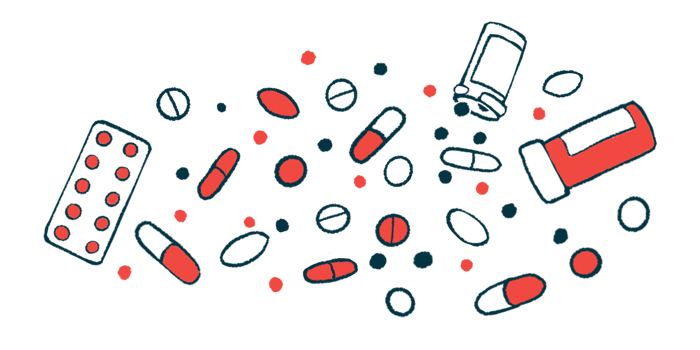Reactive supplement use works in postoperative hypoparathyroidism
Oral calcium, vitamin D supplements safe, effective for symptoms: Study
Written by |

Note: This story was updated Dec. 16, 2024, to correct errors in terminology from hyperparathyroidism to hypoparathyroidism.
Reactive supplement use — giving oral supplements of calcium and vitamin D after total thyroidectomy, or the complete surgical removal of the thyroid gland — is safe and effective in patients experiencing symptoms of postoperative hypoparathyroidism, according to a study by researchers in France.
With this reactive symptom-based calcium supplementation protocol, the rate of hospital readmission for severe hypoparathyroidism was low, with 6.8% of the treated patients requiring a return for intravenous, or into-the-vein, calcium and vitamin supplements.
“The aim of this study was to evaluate outcomes of a reactive supplementation in case of symptomatic [postoperative hypoparathyroidism],” the researchers wrote. “Supplementing only symptomatic patients was safe and efficient.”
The study, “Hypoparathyroidism after total thyroidectomy: reactive to symptoms supplementation,” was published in the journal BMC Surgery.
As many as 38% of patients have hypoparathyroidism after thyroid removal
Postoperative acquired hypoparathyroidism is the most frequent complication after a total thyroidectomy, with 18% to 38% of patients developing temporary hypoparathyroidism and as many as 3% experiencing permanent hypoparathyroidism, according to the researchers. Hypoparathyroidism can occur due to damage or accidental removal of the parathyroid glands during surgery.
As a result, patients have decreased levels of parathyroid hormone, or PTH, leading to abnormally low levels of calcium in the blood. While this is often treated with calcium supplements, the approaches to supplementation for postoperative hypoparathyroidism vary.
Management strategies used in different clinics may vary, with options such as routine supplementation of every patient or selective supplementation based on calcium and PTH levels. Reactive supplement use, based on whether patients are exhibiting hypoparathyroidism symptoms, may also be an alternative.
Now, researchers at the Besançon Regional University Hospital Center in France sought to determine if reactive supplementation with calcium and vitamin D based on hypoparathyroidism symptoms was safe and effective. The team primarily measured the occurrence of severe hypoparathyroidism after hospital discharge following surgery, specifically focusing on patients who still experienced low levels of calcium despite oral supplements and required readmission to the hospital for intravenous calcium supplementation.
Their study involved 307 patients who underwent total thyroidectomy and were treated with a reactive supplement protocol. During surgery, 40 patients (13%) had one or more of their parathyroid glands accidentally removed during surgery, according to the researchers.
In total, 125 patients (40.7%) developed hypoparathyroidism, with symptoms in 98. Among these participants, 43 developed symptoms before discharge from the hospital and 55 after being discharged.
The most common symptoms, seen in 96.9% of patients, were numbness in the fingers and toes, sometimes associated with pain, and burning or tingling sensations. Numbness around the mouth was seen in 62.2%, with muscle spasms in 15.3%.
A total of 84 patients had abnormal results in blood tests one day after the surgery. About two-thirds of these participants (67.9%) developed symptoms of hypoparathyroidism. Oral supplementation with calcium and vitamin D after hospital discharge stopped hypoparathyroidism symptoms in half of these patients. However, 18 (32.1%) still had symptoms of hypoparathyroidism after leaving the hospital.
Reactive supplement protocol may avoid unneeded treatment, per researchers
Overall, of the 264 patients who left the hospital with no symptoms, 55 developed symptoms of hypoparathyroidism. Severe hypoparathyroidism was seen in 18 of these cases, with 12 patients who had abnormally low levels of PTH.
According to the researchers, the risk factors for developing hypoparathyroidism symptoms and for hospital readmission in severe cases included being older and having low levels of PTH one day after thyroidectomy.
Supplementing only symptomatic patients stands as a safe and efficient alternative option. … Such a strategy may avoid unnecessary medication (68% did not receive any supplementation) or prolonged hospital stay.
“Based on these data, aside routine oral supplementation, or biological monitoring, supplementing only symptomatic patients stands as a safe and efficient alternative option,” the researchers wrote, noting this approach was likely to reduce the treatment burden for a majority of patients.
“Such a strategy may avoid unnecessary medication (68% did not receive any supplementation) or prolonged hospital stay,” the researchers wrote.
In discussing the limitations of the study, the researchers noted that they did not compare their reactive supplementation protocol based on symptoms to routine or selective supplementation.
“Further prospective studies are warranted to compare routine, selective and reactive supplementation strategies and to define the most appropriate strategy in terms of patient outcomes, readmission rate and quality of life,” the researchers concluded.






